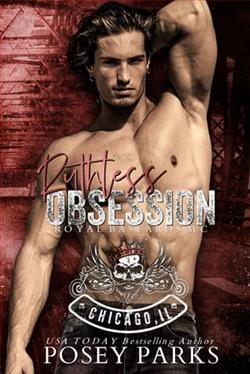Page 58 of High Season
It was somewhere that she and Hannah used to go often, all those years ago. Josie has lost count of the days that they spent stretched out on the bleached white rock, hoping that their skin would turn the exact right shade of tan instead of taking on the pink hue of sunburn. Paddling in pools among limpets and crabs with their claws braced up, strings of seaweed like dark, glistening pearls. Talking about their plans to get out of here, Josie to faraway and unfamiliar places, Hannah to England.
It was there that Josie had seen Blake Drayton for the first time. He had been standing in a circle of friends, a portable speaker breaking the peace, rupturing the serenity of Josie and Hannah’s secret, special place. Josie had noticed how Hannah’s body tensed when she saw him, how she rushed to rearrange herself, rolling over and putting a towel over the almost invisible folds of her stomach.
“Who are you trying to impress?” Josie had asked.
Hannah had looked at her like she was mad.
“You must have heard people talk about the Draytons?” she had said.
It was the first time that Josie had heard their name.
It had been the year that Josie moved to France, the single summertinged with optimism for her family. Her dad had just started to make good money. Her mum was talking about starting up a business out there, perhaps doing nails or hair for the kind of women who would pay well for the service.
Josie’s stomach aches when she thinks of the hope they all had. How her mother had practiced French tips on her and Hannah at the kitchen table. How the nail polishes and drying lamp that she had bought then sat abandoned in the hallway cupboard for years after Josie’s dad left, her mother having to take any work that she could get.
Everyone said that they should go back home to England after he walked out, but Patricia Jackson was determined to show that they could manage on their own. She said Josie and Calvin would have a better quality of life here. She heard rumors that some employers were so desperate for British staff, so unwilling to mix with the locals, that they would pay the fees at the expensive international school over the hill as part of their employment contract. That was how Patricia Jackson ended up spending her days catering to the whims of the Draytons. It was all supposed to make things better for them, to give Josie and Calvin the best shot possible. Josie didn’t fail to see the irony in the way things had turned out.
Josie hadn’t known when her mother got sick. She was living in Paris by the time Patricia was diagnosed with ovarian cancer, after months of putting off going to the doctor. Josie called home rarely, and when she did, her mother was always bright. Cheerful. Asking Josie when she would come and visit. Josie never did, even though she often said she would. Back then, the thought of returning had still been unbearable. She was ashamed of how little she had to show for the years she’d been out of prison. She was afraid of seeing the disappointment in her mother’s eyes—to see her realize that, despite all the sacrifices she had made, her daughter had made nothing of herself.
Calvin only told Josie right at the end. Patricia had been admitted to a hospital in Nice, he said in a hurried phone call. Things were much worse than they had thought. They didn’t have long left.
Josie tried to get to her mother, a frantic, multiple-train, cross-country trip. She arrived an hour too late. Calvin’s mouth had been afurious, hard line when he saw her. She went to hug him, and his body had been stiff.
“You don’t know what it’s been like,” he told her.
The funeral was held in England, which felt like a huge insult to Josie. After all those years of working herself to the bone, trying to build a life for them on the Azure Coast, Patricia Jackson had ended up cremated in a squat brick building next to a Kent A-road on a rainy Tuesday afternoon. Gray skies; triangle sandwiches and sausage rolls; a wake held at a working men’s club.
Josie hadn’t spoken to many people there. She sat in the corner with a paper plate in her lap, finding it easy to not meet anyone’s eye. It turned out that nobody really wanted to talk to her either.
It was only afterward, when just she and Calvin were left, that he collapsed into her arms, holding her tightly. It was the first time all day that Josie was glad she came.
They spoke more, after that: Josie started to call her brother, just to chat. Sometimes about nothing in particular. Sometimes about their mother, or people that they both used to know. Sometimes, about that summer.
Talking to Calvin, Josie’s recollections of the childhood she spent by the sea began to pull at her in a way they hadn’t in years. Good memories began overwriting some of the bad ones. Hours spent on the beach. The rare afternoons when Patricia was off work, and they would take a picnic down to the sand. The slow, sleepy way those days seemed to unfold, the sun tracking their progress across the sky. Josie grew sick of the city, and the fact that she never seemed to see the sun. She missed her mother in a way that she had never imagined she could.
Josie wanted to go home, and for the first time in years, she felt like she knew where that was.
Josie almost cancels on Nic that night.
Their preplanned date feels pointless now. She feels foolish for even letting herself imagine that she might have been able to go on a second date with someone. That she might be able tomimic the rhythms of an ordinary life, when her life is so far from ordinary.
She knows now that she will have to leave soon, and she will forget about Nic, and she cannot stand the thought of pretending otherwise. Pretending that this is the start of something, rather than the end.
But then, she thinks of how, years ago, she, Hannah, and Nic would borrow Hannah’s parents’ boat off-season. How they would take sandwiches and cans of sugary drinks and spend the entire day diving, coming up with salt in their hair and sun on the back of their necks. She remembers the peace of the water, the feeling that she would sometimes get when she was breathing beneath the sea. Impossibility and wonder all at once.
By the time Josie arrives, the beach is quiet, the crowds cleared out. Only a few stragglers remain, cracking open bottles of beer, pulling T-shirts over their swimming costumes as the heat bleeds out of the day.
“You look good,” Nic says, even though Josie has opted for a baseball cap and one of Calvin’s oversized T-shirts pulled over a borrowed wetsuit, the closest thing she could muster to a disguise.
He leans down to kiss her on the cheek, and Josie feels a heat in her face. The fact that they didn’t sleep together last night—didn’t even kiss—hangs in the air between them. She briefly imagines how things might have gone, if they hadn’t bumped into Nina Drayton. The dance between the kitchen and the bedroom, the anticipation, the flirtation, the moment when their bodies finally touched.
She imagines how this morning might have been. The awkwardness of waking up next to a stranger. She knows it so well: the sense that somebody badly wants you to leave. The next-day understanding that you have nothing more to say to each other, the hazy magic of the night before turned to dust.
Or, she dares to imagine, there might have been the rare, tentative delight of waking up next to someone and feeling the start of something, rather than the end. They would, perhaps, have sat outside drinking coffee together, a little embarrassed, a little excited. Touching each other whenever they could. Letting their fingers linger whenJosie handed Nic a mug. A brush of his hand against her waist. Her foot making idle contact with his leg.
Instead, Nic’s lips bump against her skin, the kiss misjudged, and Josie feels a flush of awkwardness. As if she imagined the crackle of something between them last night, the way the air felt tight and steeped with promise and ease.
“You don’t look very ready for diving,” she says, pulling back, self-conscious.















